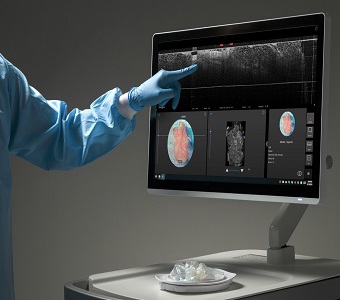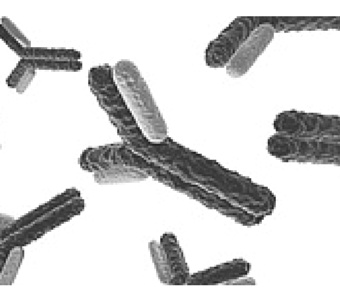Operator
Good day, and welcome to the GENFIT Positive Top Line Data from Phase III ELATIVE trial of elafibranor in patients with Primary Biliary Cholangitis conference call. Today's call will be recorded.
At this time, I'd like to turn the call over to Stefanie Magner. Please go ahead.
Stefanie Magner
Hello, everyone, and thanks for joining us on this conference call organized to follow up on the press release we published with Ipsen today on the elafibranor Phase III ELATIVE trial results. The press release can be accessed via our website at ir.genfit.com.
Joining me on the call today are Pascal Prigent, CEO; and Carol Addy, CMO.
Before we begin, I'd like to remind everyone that statements made during this conference call relating to the group's expected future performance, market potential business prospects, events or plans, including clinical plans, potential to obtain regulatory approvals, anticipated time lines for clinical development and study enrollment whether developed a loan or a partnership, ability to obtain milestone payments, potential commercialization of our products and expected cash used in our operational activities are forward-looking statements as defined under the U.S. Private Securities Litigation Reform Act of 1995.
They are based on management's current assumptions and estimates, which although believe to be reasonable, are subject to numerous known and unknown risks and uncertainties which could cause actual results to differ materially from those expressed in or implied or projected by the forward-looking statements.
For a further discussion of material risks and other important factors that could affect our business operations and financial results, please refer to the statements contained in our most recent filings with the SEC and AMF. These forward-looking statements speak only as of the date of this webcast and other than as required by applicable law, we don't undertake any obligation to update or revise forward-looking information or statements, whether as a result of new information, future events or otherwise.
Now I'll turn our call over to our CEO, Pascal Prigent.
M. Prigent
Thank you, Stefanie. So I'm excited to share on this call the positive outcome of our Phase III ELATIVE trial, investigating the use of elafibranor in PBC. Before I hand it over to Carol Addy, our CMO, let me clarify that we will not share today's data beyond what was in the press release. A comprehensive view of key results is expected to be presented at a scientific meeting later this year, and because of the abstract embargo process for scientific congresses, we are very limited in what we can publicly disclose before the event.
Our partner, Ipsen, will not hold the webcast. We have chosen to ask one, but it will be limited to prepared remarks, and we will not take questions. Carol is going to briefly walk you through some top line results, but let me first summarize for you the key highlights.
In this pivotal trial, elafibranor met its primary endpoint, showing highly statistically significant cholestasis response with 51% of patients meeting the composite endpoint versus only 4% for placebo. Elafibranor also met its first key secondary objective of ALP normalization. On the other secondary endpoints, the trend for pruritus improvement was observed with a greater decrease from baseline in the PBC Worst Itch NRS score for patients on elafibranor compared to placebo, which did not reach statistical significance.
Last but not least, elafibranor was well tolerated and showed a safety profile consistent with that observed in all previously reported studies with elafibranor. We believe that these results demonstrate that elafibranor has a favorable profile that can, therefore, potentially provide a useful alternative to the existing therapy in second-line treatment of PBC.
I'll now let Carol give you a little bit more details about ELATIVE, and I'll conclude with what is next for GENFIT. Please go ahead, Carol.
Carol Addy
Thank you, Pascal, and hello, everyone. So the important context for the data that we are sharing with you today is that PBC is a severe cholestatic liver disease that impacts and ultimately gradually destroys the bile ducts, which leads to inflammation and scarring in the liver. This condition, if left untreated, can lead to cirrhosis, liver failure and may ultimately require liver transplantation.
There are no existing cures for PBC. And as such, current therapies are only able to potentially slow the progression of the disease. And unfortunately, up to half of patients with PBC are unable to benefit from existing therapies. And that's either due to inadequate response to or due to intolerable side effects.
As such, we at GENFIT sought to investigate the potential of elafibranor, our dual PPAR alpha/delta agonist as a novel second-line treatment for patients with PBC. So as a reminder, the ELATIVE trial is a randomized, double-blind, placebo-controlled global multicenter Phase III study that was aimed to evaluate the efficacy and safety of elafibranor following 52 weeks of treatment in approximately 160 patients with PBC, having inadequate response to or intolerability to ursodeoxycholic acid or UDCA. And this is the current first-line treatment for PBC.
Patients in this study were randomized in a 2:1 ratio to elafibranor or placebo. The primary endpoint was aimed to evaluate changes from baseline in cholestasis, and this was assessed by a composite endpoint comprised of biochemical markers, serum, alkaline phosphatase and total bilirubin. We evaluated as well 2 key secondary endpoints, and these included the effect of elafibranor on normalization of alkaline phosphatase and as well change from baseline in symptoms of pruritus.
Happy to report that the trial met its primary composite endpoint and specifically, that was alkaline phosphatase less than 1.67x the upper limit of normal. Alkaline phosphatase decrease of at least 15% and total bilirubin less than or equal to the upper limit of normal, and this was evaluated again at 52 weeks.
We saw 51% of patients randomized to elafibranor 80 milligrams, achieving this cholestasis response compared to only 4% in those patients who were randomized to placebo. And we're very proud to say that this was a very highly statistically significant result with a p-value of less than 0.0001.
And this is important because we understand that alkaline phosphatase and bilirubin are predictors of PBC disease progression and reductions in levels of both of these markers can indicate reduced cholestatic injury as well as a decreased likelihood of disease progression.
The first key secondary endpoint was also met with a greater proportion of patients randomized to elafibranor achieving normalization of alkaline phosphatase compared to patients randomized to placebo. As with the primary endpoint, this result as well was also highly statistically significant.
The other key secondary endpoint was not met. However, patients on elafibranor did demonstrate a trend for pruritus improvement with a greater decrease from baseline in the PBC Worst Itch NRS score compared to patients randomized to placebo.
Last and certainly not least, elafibranor was generally well tolerated and a safety profile consistent with what we have observed in our previously conducted studies.
We're very pleased to see these data, which demonstrate that elafibranor has a favorable benefit risk profile. And as such, we anticipate that elafibranor, if approved, will provide a clinically meaningful treatment option for patients with PBC.
Pascal, I'll now hand it back over to you.
M. Prigent
Thank you, Carol. So now we believe that we have an approvable product. So what's next?
As you know, in December 2021, GENFIT licensed a worldwide elafibranor rights ex-China to Ipsen. Going forward, Ipsen is responsible for the next steps in the elafibranor program development, starting with seeking regulatory approval and ultimately getting elafibranor to health care professionals and patients.
As we have said before, the second-line treatment of PBC is a fairly sizable market, and it is growing rapidly. We believe that the combination of a favorable product profile and Ipsen's proven commercial capabilities and footprint in both the U.S. and Europe can enable significant commercial success. Furthermore, there are relatively few options with only one approved product and one additional program nearing completion of its Phase III.
As per the agreement with Ipsen, we are eligible for up to EUR 360 million of milestone payments. We expect filing to happen before the end of the year, and that will trigger the first milestone. Elafibranor has a breakthrough designation in PBC and is therefore potentially eligible for accelerated approval. Working on the basis of typical regulatory calendars, elafibranor could therefore potentially be up for approval in the latter half of next year, an event that was sensible in motion for additional milestone payments in our first royalty payments.
The conduct of the open-label extension part of the ELATIVE study is transitioning to Ipsen, who under our agreement, bears for development and future commercial costs associated with elafibranor Therefore, for GENFIT, the elafibranor program will not be associated within cost. And if the product is approved, the revenue stream of milestone payments and royalties will essentially help us fund and accelerate the development of a pipeline we have built in rare liver diseases characterized by the severity and high medical needs.
In May, we announced that we licensed the exclusive worldwide rights from Seal Rock Therapeutics for the intravenous formulation of the ASK1 inhibitor, SRT-015 in acute liver disease is expanding GENFIT's ACLF franchise, which now comprises 3 assets, VS-01, NTZ and now SRT-015, and all those assets are based on different mechanism of action, leveraging complementary pathways.
Preclinical and clinical evidence support ASK1 inhibition as a relevant therapeutic strategy in multisystem disorders, such as acute on chronic liver failure. First in-human study is planned in the second half of 2024 to support a proof-of-concept study in ACLF patients as early as 2025.
This year, we also started 2 Phase II studies, a trial evaluating VS-01 in ACLF, for which we target 60 patients with Grade 1 and 2 -- ACLF Grade 1 and 2. The treatment will be 4 days of intraperitoneal administration of VS-01 on top of standard of care. The primary objective of this study is to measure safety and efficacy using the chronic liver failure consortium or ACLF score. The first results are anticipated in the first half of 2024.
The Phase Ib/IIa trial evaluating GNS561 in patients with advanced KRAS mutated cholangiocarcinoma or CCA and that Phase Ib will evaluate the safety and tolerability of GNS561 when given in combination with trametinib, the MEK inhibitor and also identify the recommended doses of the combination to be administered in the Phase IIa study, which will then evaluate efficacy. The first results are anticipated in the second half of 2024.
We are also finalizing our plans for NTZ in ACLF after discussing with the FDA the design of our Phase IIa proof-of-concept study to evaluate NTZ safety and efficacy in patients with ACLF Grades 1 and 2. And then, of course, beyond SRT-015 in ACLF, we are also developing VS-01 in UCD and VS-02 in hepatic encephalopathy.
So with 3 programs in clinical stage and another 3 in preclinical development, we expect to have a steady news flow going forward. We also have a robust cash position and financial visibility that we believe will be considerably strengthened by today's news.
In conclusion, I would say -- I would like to say that we are pleased with these results because PBC remains a disease with significant unmet medical needs. This long-awaited trial outcome is, therefore, good news for patients and health care professionals who need more options to improve the clinical management of PBC. It is also a gratifying recognition of the quality of our team's work and the demonstration when GENFIT's innovation can deliver tangible results.
We continue to be very satisfied with the level of collaboration we have with Ipsen, and we trust that their focus and commitment to executional excellence will enable them to make the most out of this opportunity.
We expect this success to be the first step in a new era for GENFIT, an era where we will now have a regular revenue flow and we'll be able to leverage it to create value by accelerating the development of our programs in rare and severe liver disease with no or little treatment options, especially in ACLF, where we already have 3 clinical stage assets in development.
Before ending this call, I would like to thank all the personnel at GENFIT, Ipsen and all of our partners who have worked so hard and for so long to get to this point as well, of course, as the patients and the investigators who have been collaborating with us to advance this program.
Thank you very much.
Access This Content Now
Sign Up Now!




